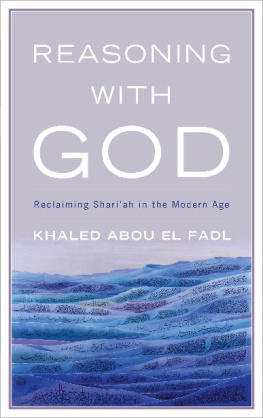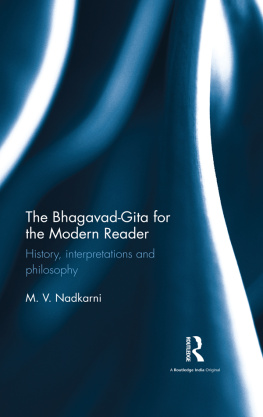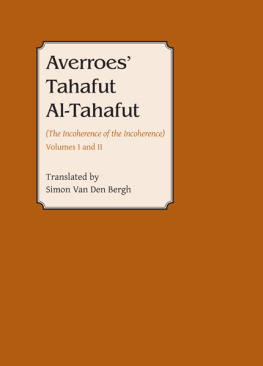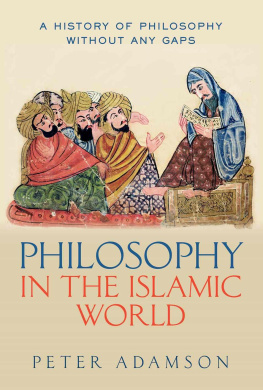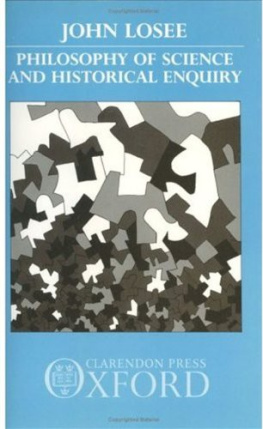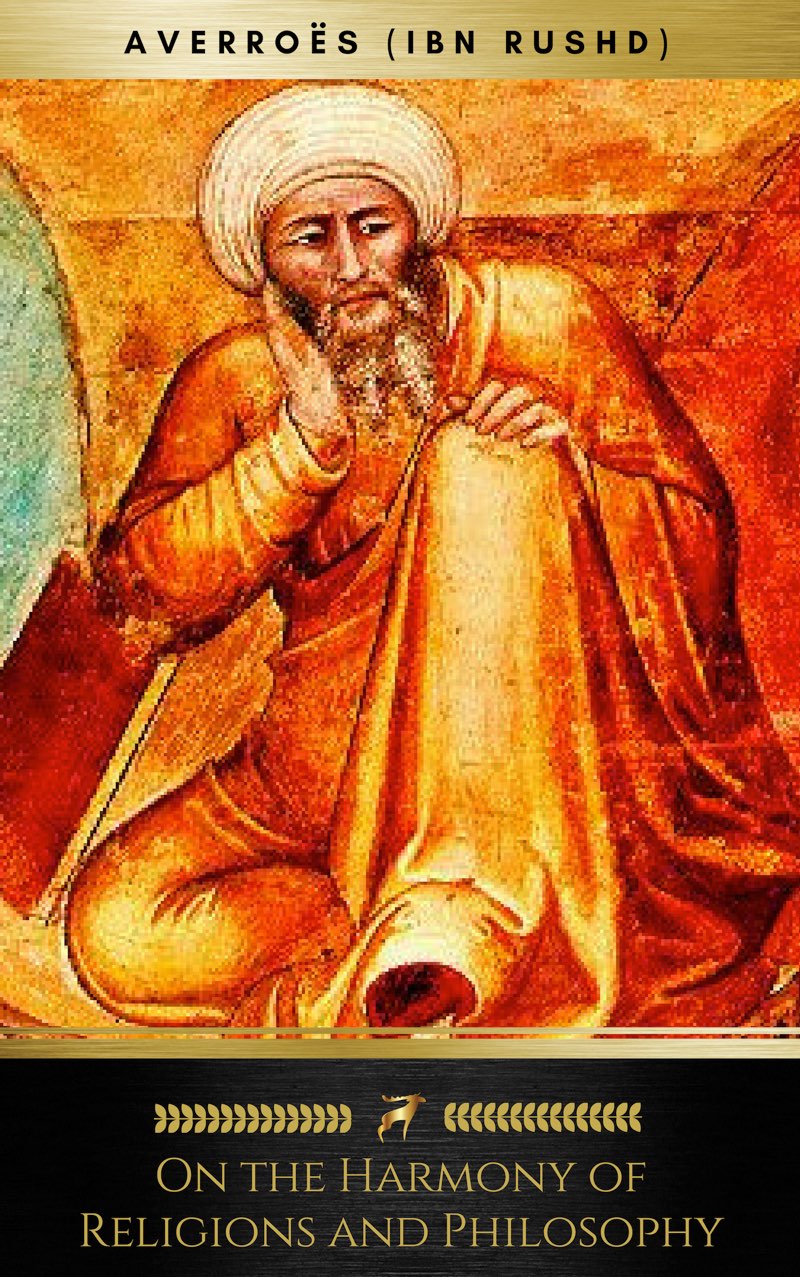All rights reserved.
No part of this book may be reproduced in any form or by any electronic or mechanical means, including information storage and retrieval systems, without written permission from the author, except for the use of brief quotations in a book review.
The Creation of the Universe
T he Law teaches that the universe was invented and created by God, and that it did not come into being by chance or by itself. The method adopted by the Law for proving this is not the one upon which the Asharites have depended. For we have already shown that those methods are not specially certain for the learned, nor common enough to satisfy all the classes of men. The methods which are really serviceable are those which have a very few premises, and the results of which fall very near to the commonly known ideas. But in instructing the common people the Law does not favor statements composed of long and complete reasoning, based upon different problems. So everyone who, in teaching them, adopts a different course, and interprets the Law according to it, has lost sight of its purpose and gone astray from the true path. And so also, the Law in giving illustrations for its reasoning uses only those which are present before us.
Whatever has been thought necessary for the common people to know, has been explained to them by the nearest available examples, as in the case of the day of Judgment. But whatever was unnecessary for them to know, they have been told that it was beyond their knowledge, as the words of God about the Soul [Qur'an 22.85]. Now that we have established this, it is necessary that the method adopted by the Law for teaching the creation of the universe to the common people be such as would be acknowledged by all. It is also necessary that since there cannot be found anything present to illustrate the creation of the universe the Law must have used the examples of the creation of things in the visible world.
So the method adopted by Law is that the universe was made by God. If we look intently into the verse pertaining to this subject we shall see that the method adopted is that of divine solicitude, which we know to be one of those which prove the existence of God. When a man sees a thing made in a certain shape, proportion and fashion, for a particular advantage is derived from it, and purpose which is to be attained, so that it becomes clear to him, that had it not been found in that shape, and proportion, then that advantage would have been wanting in it, he comes to know for certain that there is a maker of that thing, and that he had made it in that shape and proportion, for a set purpose. For it is not possible that all those qualities serving that purpose be collected in that thing by chance alone. For instance, if a man sees a stone on the ground in a shape fit for sitting, and finds its proportions and fashion of the same kind, then he would come to know that it was made by a maker, and that he had made it and placed it there. But when he sees nothing in it which may have made it fit for sitting then he becomes certain that its existence in the place was by chance only, without its being fashioned by any maker.
Such is also the case with the whole of the universe. For when a man sees the sun, the moon, and all the stars, which are the cause of the four seasons; of days and nights, of rain, water and winds, of the inhabitation of the parts of the earth, of the existence of man, and of the being of all the animals and the plants and of the earth being fit for the habitation of a man, and other animals living in it; and the water fit for the animals living in it; and the air fit for birds, and if there be anything amiss in this creation and edifice, the whole world would come to confusion and disorder, then he would come to know with certainty that it is not possible that this harmony in it for the different members of the universe man, animals, and plants be found by chance only.
He will know that there is one who determined it, and so one who made it by intention, and that is God, exalted and magnified may He be. He would know with certainty that the universe is a created thing, for he would necessarily think that it is not possible that in it should be found all this harmony, if it be not made by someone, and had come into existence by chance alone. This kind of argument, is quite definite and at the same time clear, and some have mentioned it here. It is based upon two principles which are acknowledged by all. One of them being, that the universe, with all its component parts, is found fit for the existence of man and things; secondly, that which is found suitable in all its parts, for a single purpose, leading to a single goal, is necessarily a created thing. So those two principles lead us naturally to admit that the universe is a created thing, and that there is a maker of it. Hence "the argument of analogy" leads to two things at one and the same time, and that is why it is the best argument for proving the existence of God. This kind of reasoning is also found in the Qur'an in many verses in which the creation of the universe is mentioned.
For instance, "Have We not made the earth a bed, and the mountains for shelter to fix the same? And have We not created you of two sexes; and appointed your sleep for rest and made the night a garment to cover you, and destined the day to a gaining of a livelihood; and built over you seven heavens, and placed therein a burning lamp? And do We not send down from the clouds pressing forth rain, water pouring down in abundance, that We may hereby produce corn and herbs, and gardens planted thick with trees" [Qur'an 77.3ff]. If we ponder over this verse it would be found that our attention has been called to the suitability of the different parts of the universe for the existence of man. In the very beginning we are informed of a fact well-known to all and that is that the earth has been created in a way which has made it suitable for our existence. Had it been unstable, or of any other shape, or in any other place, or not of the present proportion, it would not have been possible to be here, or at all created on it. All this is included in the words, "Have We not made the earth a bed for you"? for in a bed are collected together all the qualities of shape, tranquility, and peace, to which may be added those of smoothness and softness.
So how strange is this wonderful work and how excellent this blessedness, and how wonderful this collection of all the qualities! This is so because in the word mihad (bed) are brought together all those qualities, which are found in the earth, rendering it suitable for the existence of man. It is a thing which becomes clear to the learned after much learning and a long time, "But God will appropriate His mercy unto whom He pleases [Qur'an 2.99]. Then as to the divine words, "And the mountains for stakes," they tell us of the advantage to be found in the tranquility of the earth on account of the mountains. For had the earth been created smaller than it is now, that is, without mountains, it would have been quivered by the motion of other elements, the water and the air, and would have been shaken and thus displaced. This would naturally have been the cause of the destruction of the animal world. So when its tranquility is in harmony with those living on it, it did not come into being by chance alone, but was made by someone's intention, and determination. Certainly it was made by One who intended it, and determined it, for the sake of those living on it.




